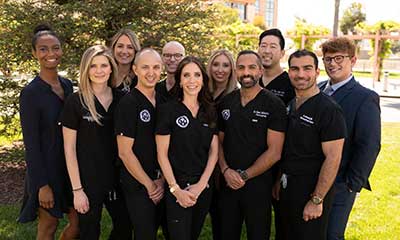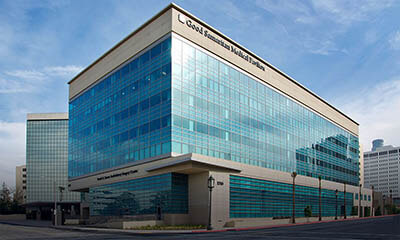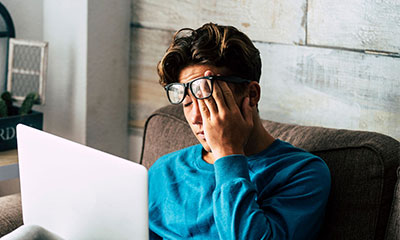For years, people living with persistent anosmia were left with few options beyond patience and hope. Standard treatments such as medications, smell training, or surgery sometimes helped, but many patients found themselves months or even years later with little or no improvement. At the Los Angeles Center for Ear, Nose, Throat and Allergy, we understand how frustrating and isolating this can be. That is why we are now offering an innovative treatment that is showing promising results for some patients — platelet-rich plasma (PRP) therapy.
PRP is not new to medicine. It has been used successfully in other fields such as orthopedics, dermatology, and dentistry to help the body heal more efficiently. What is new, however, is its application in treating smell disorders. Early research and our own clinical experiences suggest that this approach could be a game changer for certain patients living with anosmia.
Understanding PRP and How It Works
Platelet-rich plasma is made from a small sample of your own blood. During the preparation process, the blood is spun in a centrifuge to separate out the components. This creates a highly concentrated plasma that is rich in platelets and the growth factors they contain. These growth factors are powerful natural messengers that stimulate healing, reduce inflammation, and encourage tissue regeneration.
When used for anosmia, PRP is carefully injected into targeted areas of the nasal cavity. These are the regions where the olfactory nerve endings and supporting tissue are located. The goal is to encourage regrowth of damaged nerve fibers, reduce inflammation, and restore the communication pathway between the nose and the brain that allows scents to be detected and interpreted.
Why PRP Is Generating Excitement for Smell Loss
The main reason PRP has become such a focus for anosmia research is its regenerative potential. Unlike medications that primarily address symptoms, PRP aims to repair and restore the tissue that has been damaged. For patients with post-viral anosmia, especially those whose symptoms began after COVID-19, the inflammation and nerve damage caused by the virus can be stubborn. PRP may help speed recovery by directly supporting the body’s own healing processes.
Another advantage is its safety profile. Because PRP is derived from your own blood, there is no risk of rejection and the likelihood of allergic reaction is extremely low. This makes it a low-risk procedure that can be considered even in patients who have not responded well to other treatments.
If you’ve been told there are no more options for your smell loss, PRP therapy could be the regenerative breakthrough you’ve been waiting for.
Book an Appointment at LA ENT
What the Research Is Telling Us
Although PRP therapy for anosmia is still relatively new, early studies are encouraging. In several clinical trials, patients with long-standing post-viral smell loss received PRP injections and showed measurable improvements in standardized smell tests compared to control groups. Many of these patients also reported subjective improvements in their ability to detect and enjoy scents, underscoring the regenerative promise of PRP.
While results vary, the trend is clear enough to have ENT specialists around the world exploring PRP as a meaningful addition to the treatment landscape. At LAENT, we are monitoring these developments closely and contributing our own experience to the growing body of evidence.
What to Expect During Treatment at LAENT
If you come to LAENT for PRP therapy, your journey begins with a comprehensive evaluation. We take the time to review your medical history, discuss your symptoms, and perform any necessary testing to understand the extent and cause of your smell loss. This step is essential, as not all cases of anosmia will benefit from PRP, and we want to ensure the treatment is appropriate for your condition.
On the day of your procedure, a small amount of blood is drawn from your arm. This is then processed in our on-site centrifuge system to isolate the platelet-rich portion. Once the PRP is ready, our ENT specialists use precise techniques to deliver it to the targeted areas inside your nasal cavity. We typically use local anesthesia to ensure you are comfortable throughout the process.
The entire appointment usually takes less than an hour, and most patients are able to return to their regular activities the same day. Some mild soreness or pressure in the nasal area is normal for a short time after the injections, but this usually resolves quickly.
Who May Be a Good Candidate for PRP
PRP therapy may be most beneficial for patients with smell loss that has persisted for several months despite other treatments. This includes individuals whose anosmia began after a viral infection, particularly COVID-19, as well as certain cases where nerve damage followed sinus surgery or head injury. Patients must be free from active sinus infections at the time of treatment to reduce the risk of complications and improve the chances of success.
Don’t let anosmia isolate you any longer, schedule a comprehensive evaluation to see if you’re a candidate for PRP treatment.
Schedule a Consultation Now
Recovery and Results
Improvement in smell can occur gradually over weeks to months as nerve fibers and surrounding tissues heal. Some patients notice changes sooner, while others experience a slower return of function. In some cases, more than one PRP session may be recommended to achieve optimal results.
At LAENT, we combine PRP with other supportive therapies, such as smell training, to give patients the best possible outcome. We also monitor progress carefully, adjusting the approach as needed.
Why Choose LAENT for PRP Anosmia Treatment
Our team at the Los Angeles Center for Ear, Nose, Throat and Allergy has deep expertise in diagnosing and treating smell disorders. We are committed to offering treatments that are both safe and supported by emerging scientific evidence. By bringing PRP therapy to our patients in Los Angeles, we are expanding the range of options available and offering renewed hope to those who have been told there is nothing more that can be done.
We also pride ourselves on personalized care. Every case of anosmia is unique, and we tailor our treatment recommendations to fit each patient’s individual situation. This combination of advanced technology, clinical experience, and patient-centered care is what sets LAENT apart.
A New Era in Anosmia Care
For too long, smell loss was considered a condition you just had to endure. With treatments like PRP, we now have a tool that can directly target the damaged tissues and give patients a real chance at regaining this vital sense. While no treatment works for everyone, the results we are seeing are encouraging, and the potential is enormous.
If you have been living with anosmia and want to explore whether PRP therapy is right for you, we invite you to contact our team at Los Angeles Center for Ear, Nose, Throat and Allergy. Together, we can determine the best path forward to help you reconnect with the scents, flavors, and experiences that make life more vibrant. Start the conversation today by visiting our Los Angeles ENT homepage and scheduling a consultation.
Take the first step toward reconnecting with the world of scent and book your online consultation with our Los Angeles specialists today.
Book Your Visit Online

























